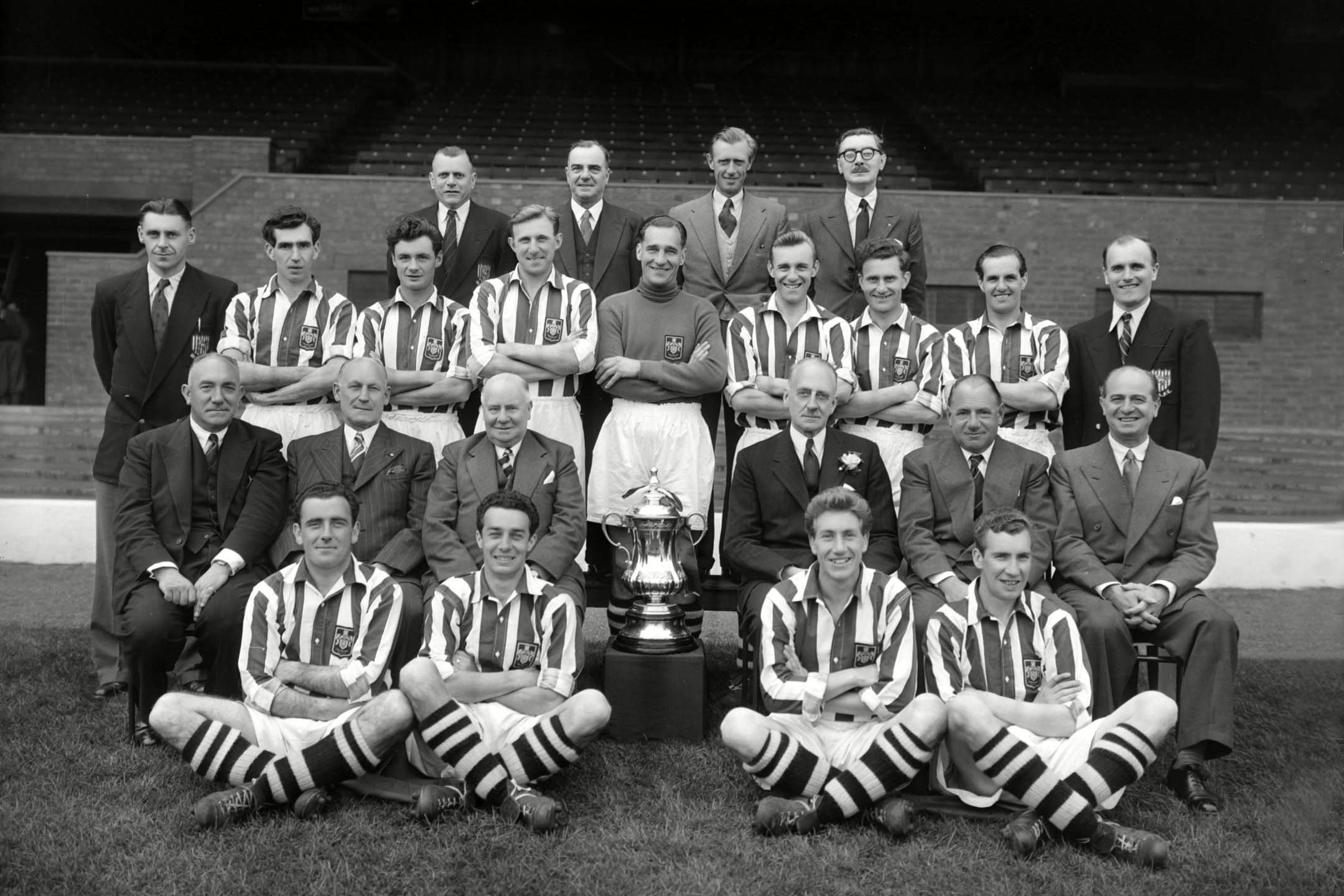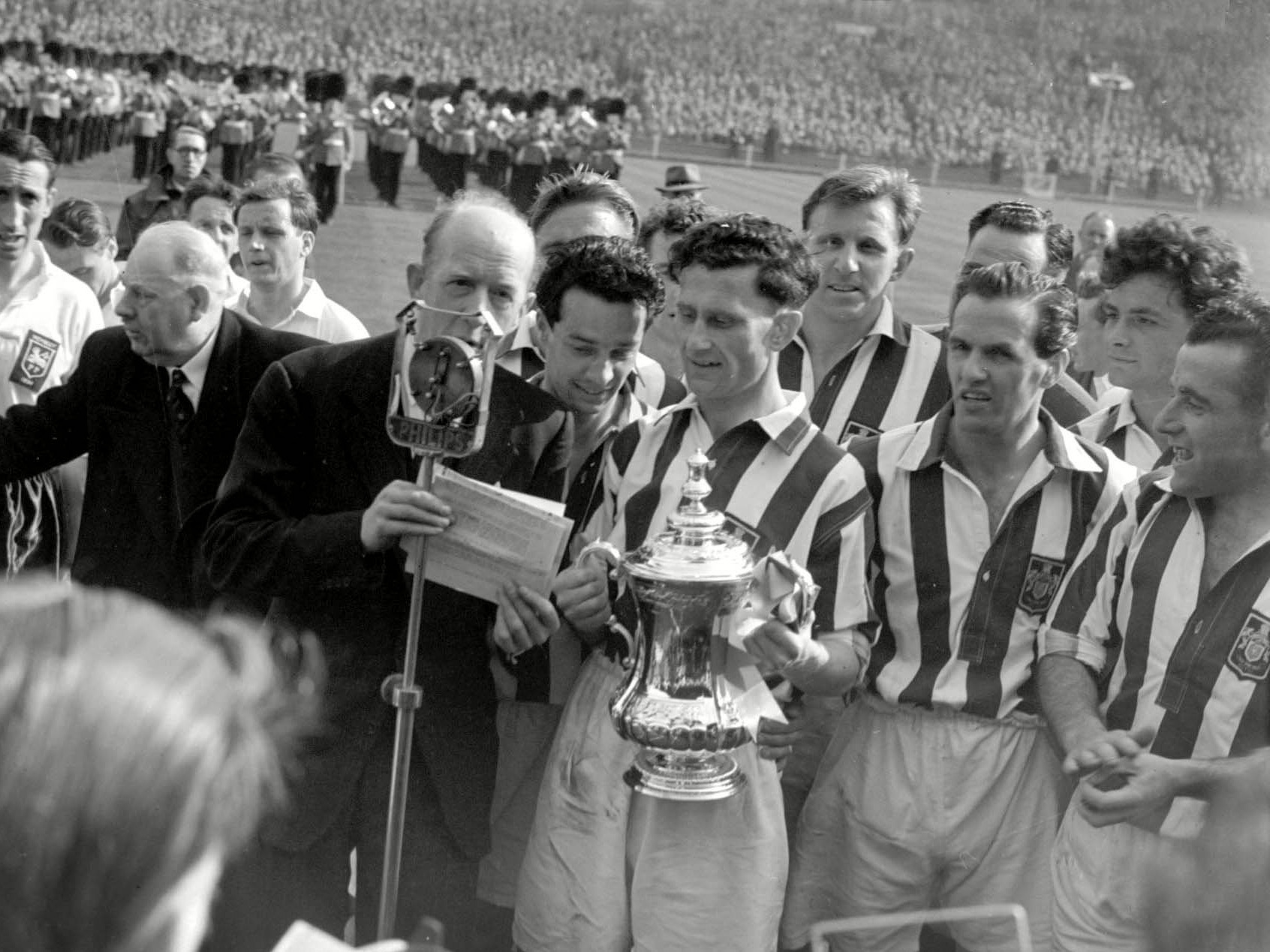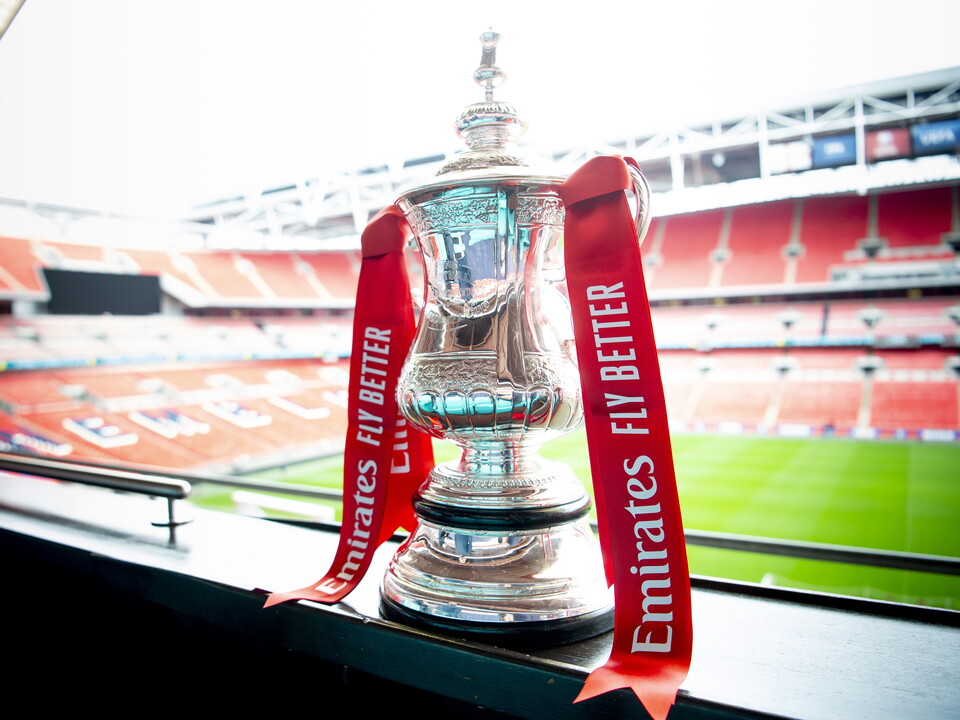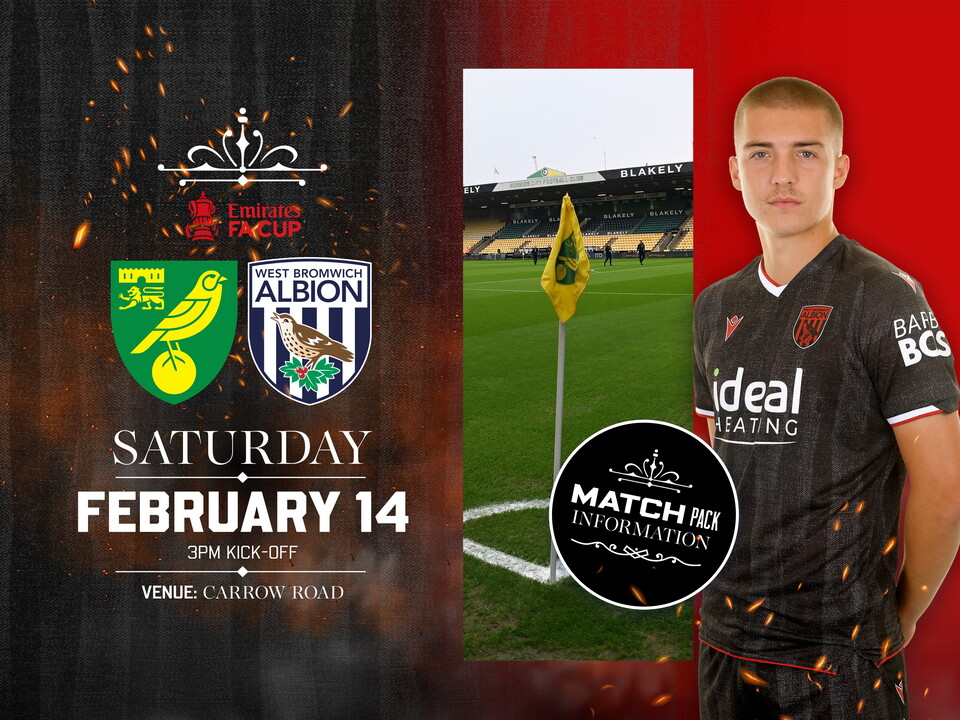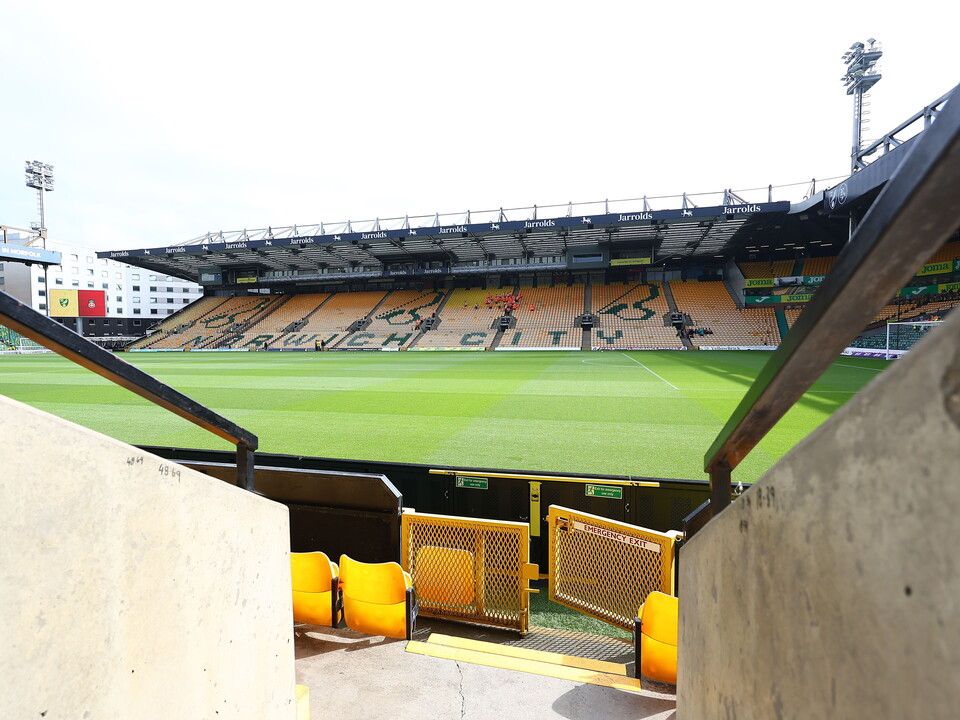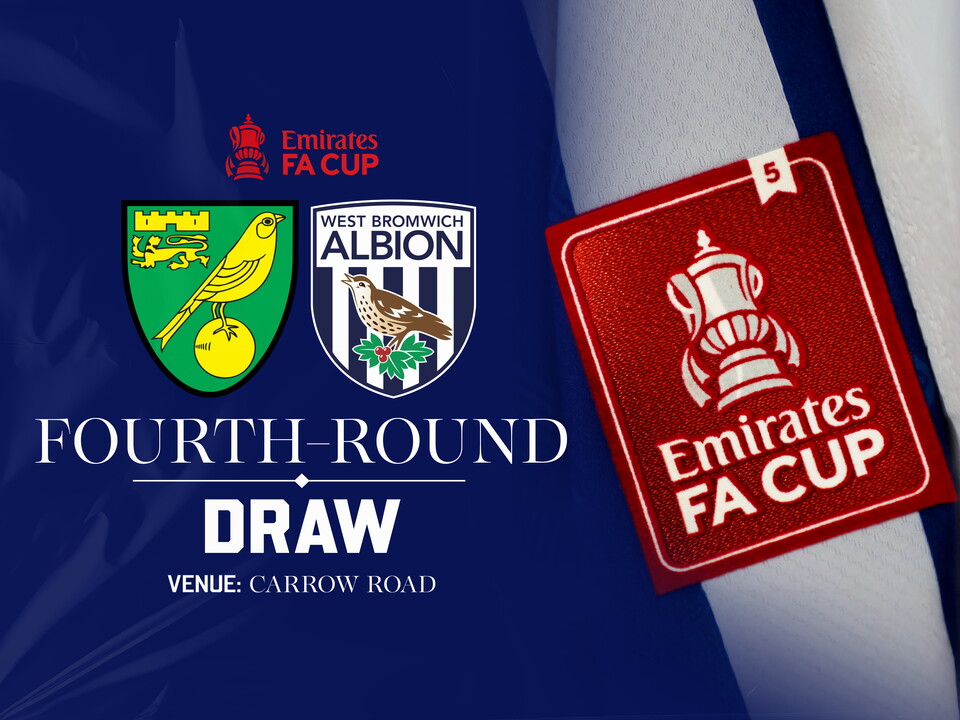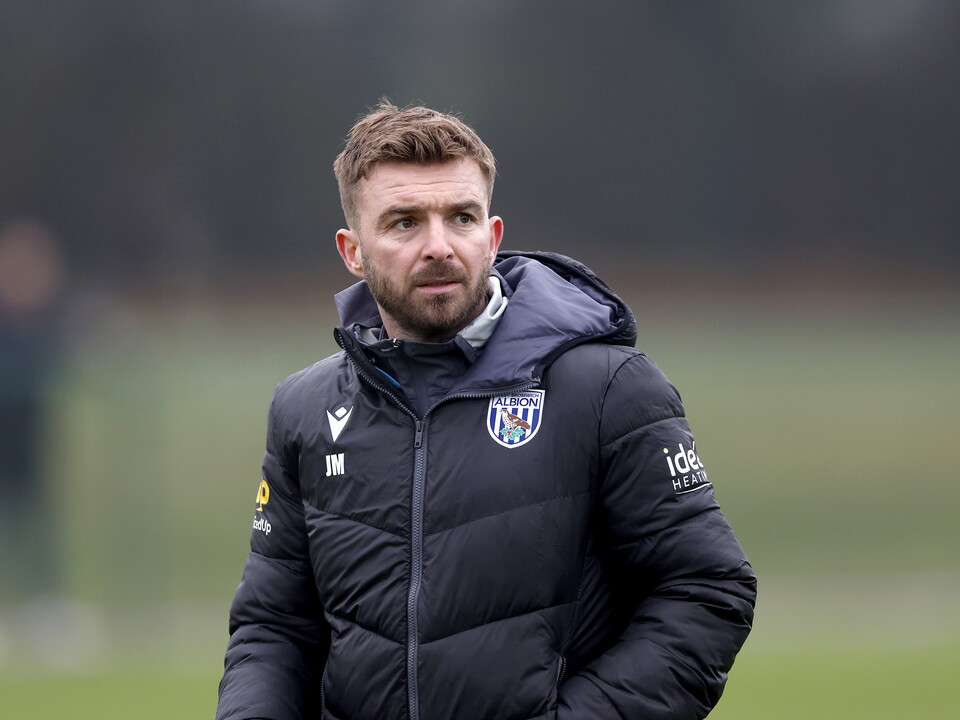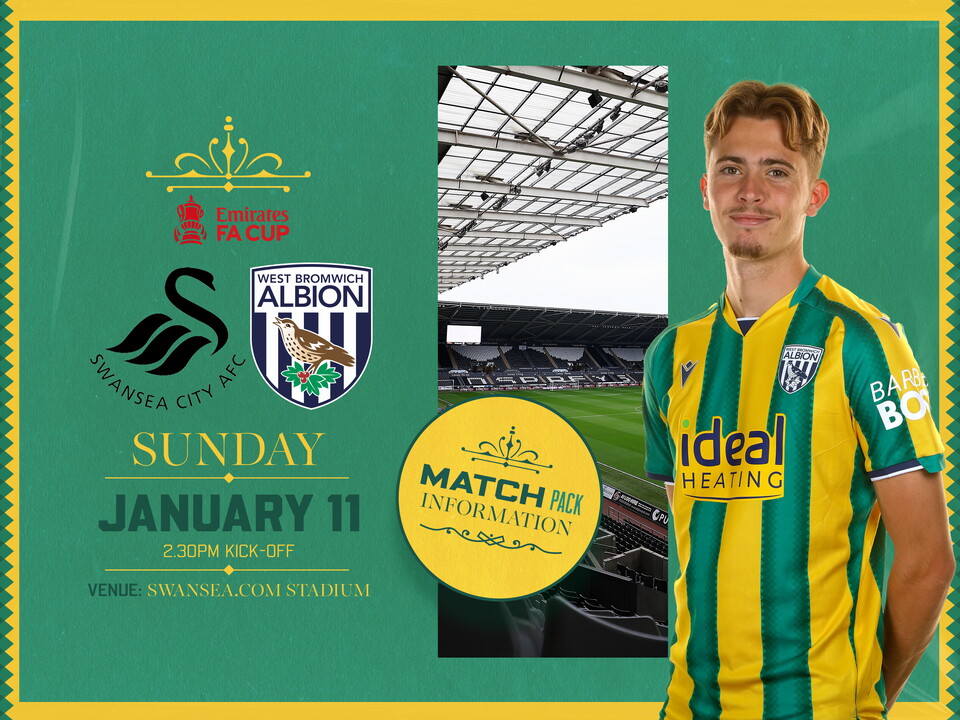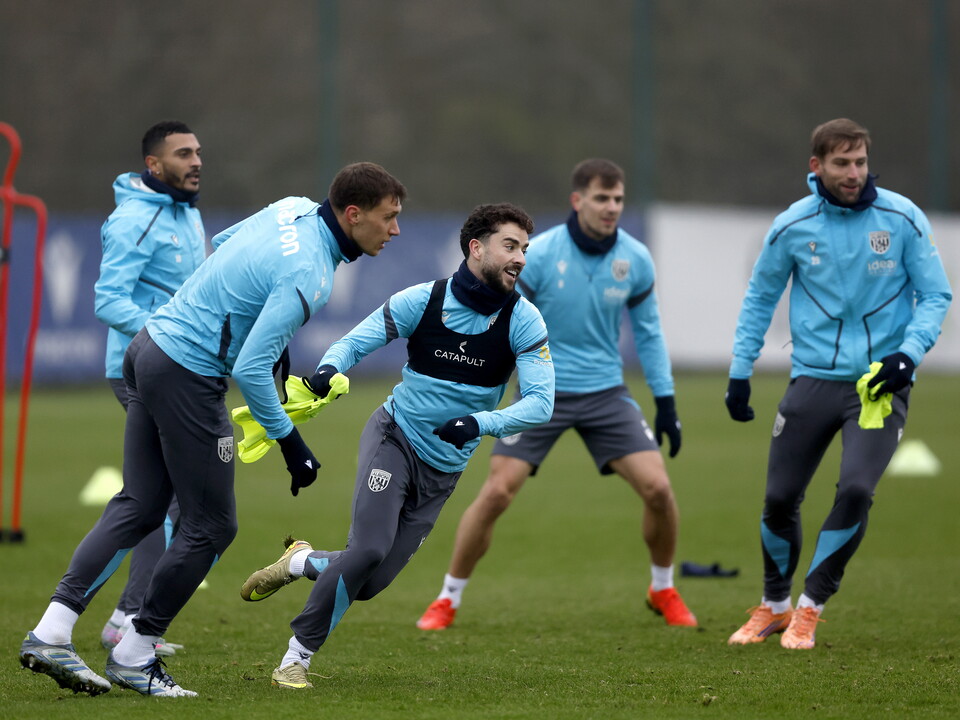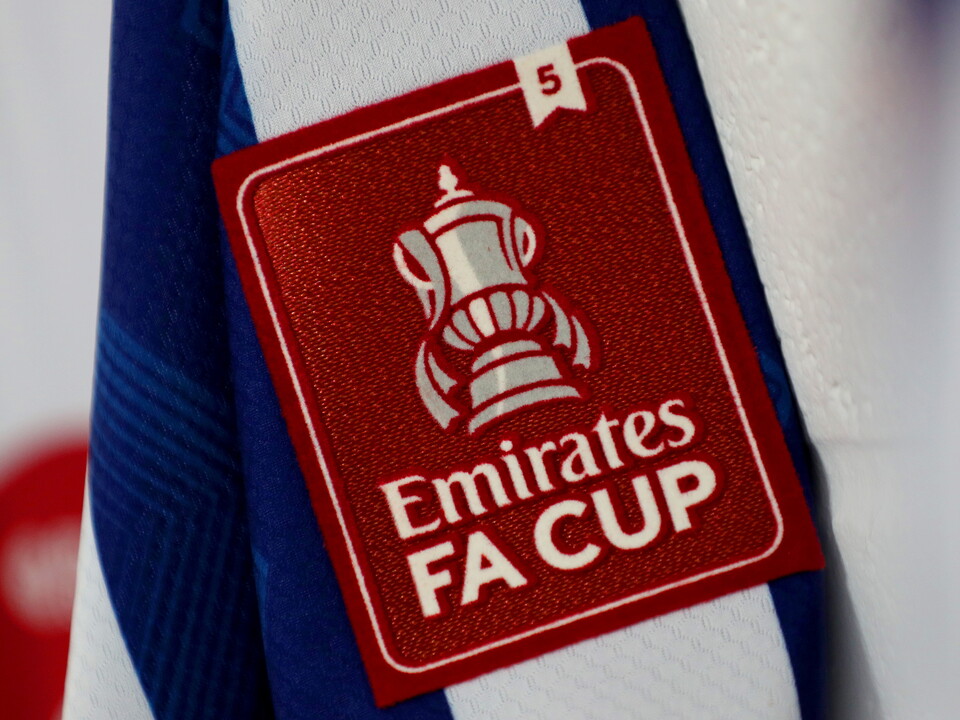Highly-respected West Bromwich Albion author and historian Dave Bowler looks back on the Baggies' journey to FA Cup success in 1954, 70 years on from their triumph against Preston North End at Wembley.
The Empire Stadium, Wembley, enjoyed some year from May 2 1953 to May 1 1954. On the first of those days, it played host to the legendary ‘Matthews final’, when Stanley Matthews finally got his FA Cup winner’s medal after inspiring Blackpool to come back from 3-1 down to beat Bolton Wanderers 4-3.
Just over six months later, on November 25, in ‘the match of the century’, Hungary took England apart, winning 6-3 and ending forever the idea that the world had nothing to teach us about football.
Closing the circle, on May 2 1954, West Bromwich Albion took on Preston North End in an FA Cup final that took its lead from those two storied predecessors. It was supposed to be a day when England’s other magical winger, Tom Finney, would emulate Matthews and become a winner at last. That was not to be because, of all the sides in the country, the one that most resembled the Magical Magyars was Albion, the ‘team of the century’ as they had been described in the press.
Manager Vic Buckingham, schooled by Arthur Rowe of Tottenham’s push and run masters who won the First Division in 1951, had crafted a thoroughly modern looking side, looking beyond the rigid WM formation that dominated English football, sneering at the kick and rush game played by so many rival sides.
Albion tore into 1953/54. They won 12 of the first 15 league games, drawing two more. That form persisted into the new year in league and into the FA Cup, the Throstles seeing off Chelsea, Rotherham United and then Newcastle United in one of the all-time great FA Cup ties in the fifth round, before disposing of Tottenham in the quarter-final.
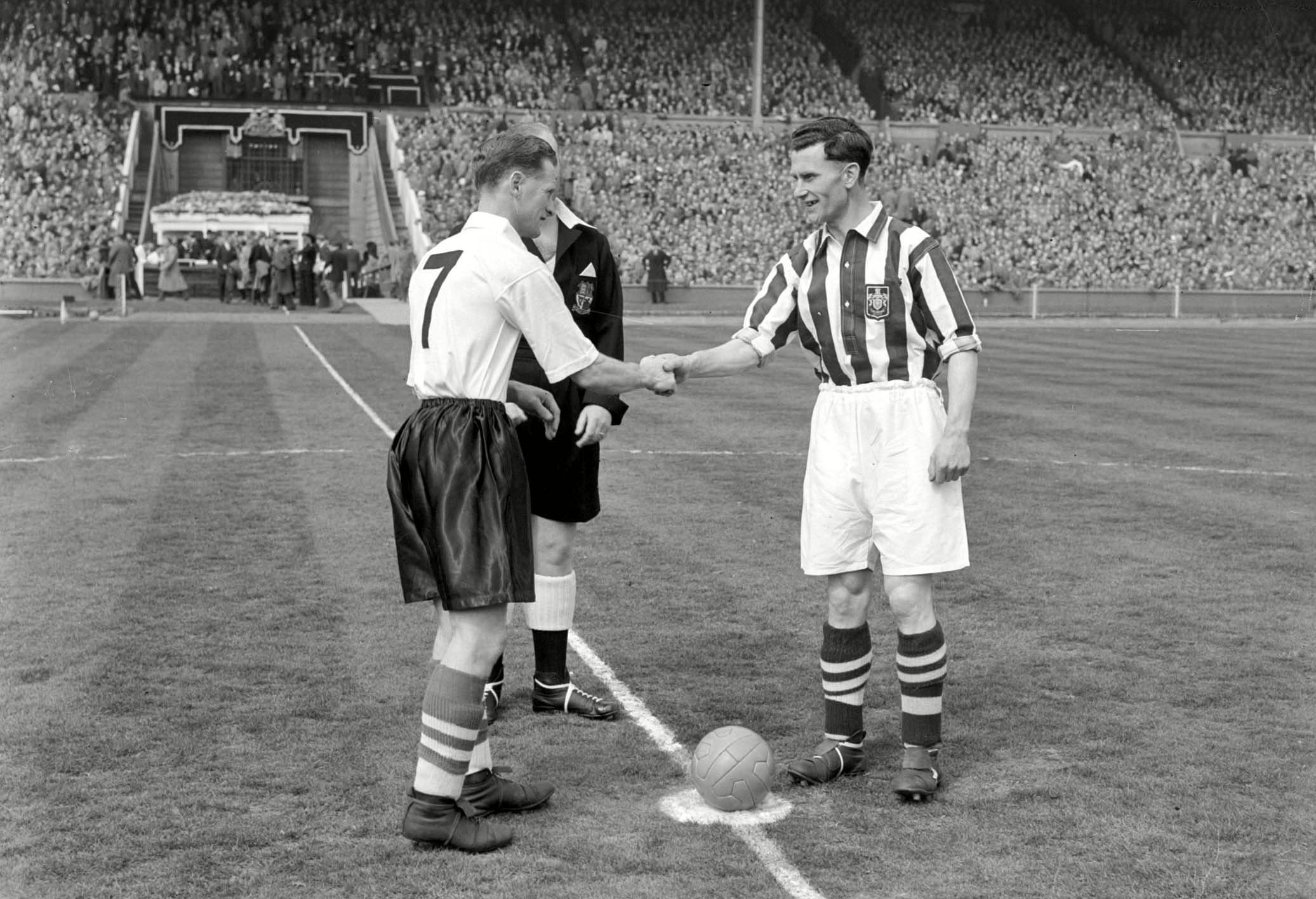
When they defeated Blackpool 2-1 on league duty on March 20, they were three points clear of Wolves at the top of the First Division, with an FA Cup semi-final against Port Vale of the Third Division (North) taking place at Villa Park the following Saturday.
The Throstles came through that one only for an injury crisis to descend that would variously cost them the services of Ray Barlow, Len Millard, George Lee and Frank Griffin, and would cost goalkeeper Norman Heath his career. More than that, as Albion prepared for two games in four days at Sunderland and then what could have been the title clincher at home to Wolves, the England selection committee, who had been studiously ignoring The Hawthorns all season, suddenly discovered Ronnie Allen and Johnnie Nicholls, who had already amassed 62 goals between them. They were called up for England, missed both games, which Albion duly lost, and the title was gone. The 20th century’s first league and cup double, which had been there for the taking, was stolen from our grasp. Not that we’re bitter.
Which left the consolation of the FA Cup to play for, a competition that was still the one that mattered most back then, one that was screened live on television, a wonder of the new Elizabethan age. Fortunately, by the time Wembley rolled around, with the tragic exception of Heath and right-back Stan Rickaby, the Throstles could boast a clean bill of health.
Preparation started on the Tuesday morning as they set off for their cup final HQ at Twyford, near Reading, where they trained at the nearby Huntley & Palmer’s recreation ground, adjacent to the biscuit factory. There was a bit of golf on the Wednesday and a TV appearance with The Memory Man on the Thursday evening before, on Friday afternoon, Albion were given the chance to get the measure of Wembley itself, as Ronnie Allen recalled: “As we walked over the wonderful turf, lined up to suit the photographers, I came to a halt on the penalty spot where the groundsman was putting the finishing touches to the twelve-yard mark. Was it an omen for me, the penalty-taker of the side?”
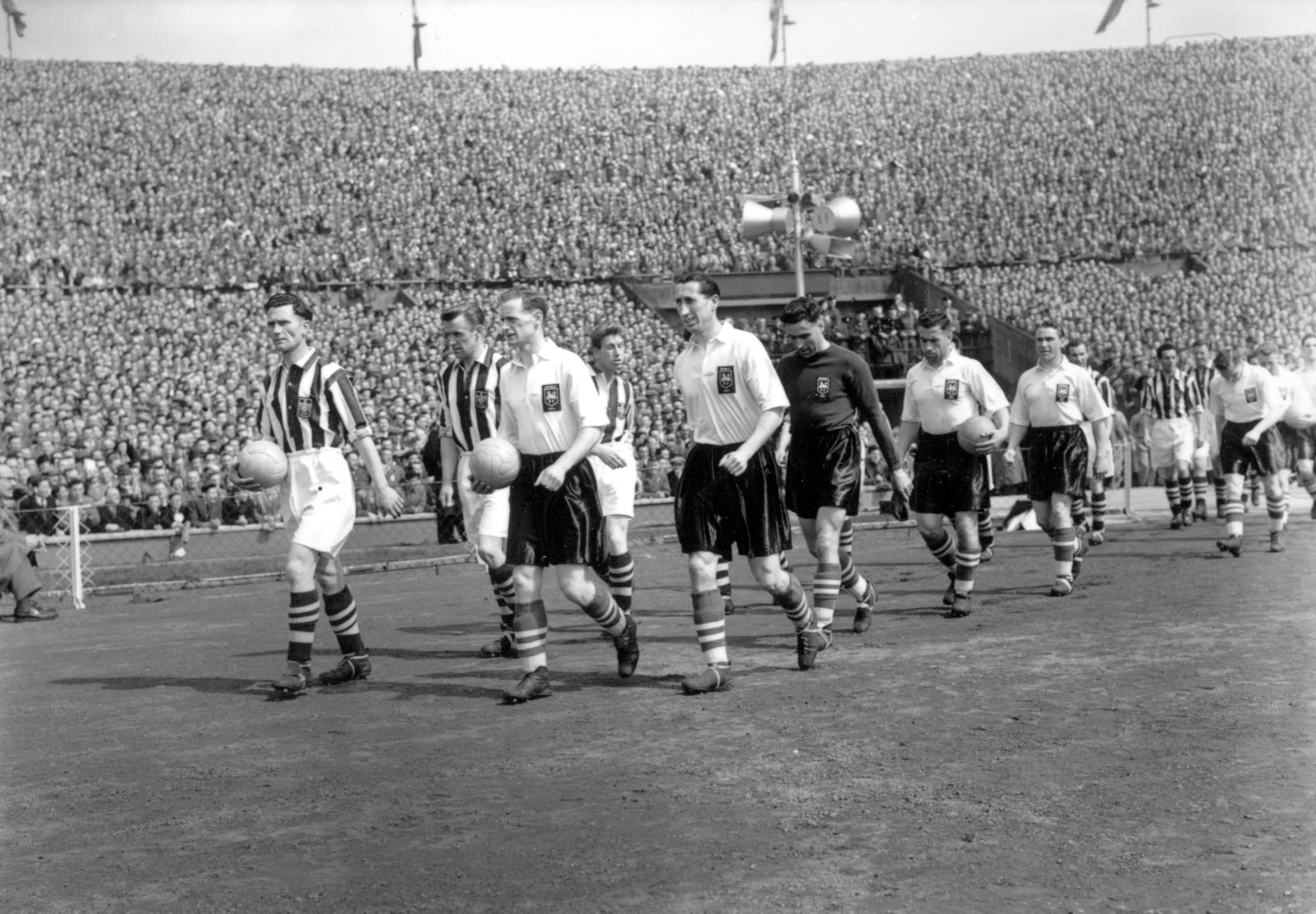
What of that celestial Albion side that was readying itself for the 1954 FA Cup final against Preston North End? So good were they that one newspaper reckoned they should represent England en masse at the 1954 World Cup, which would have been a bit of a shock to Scotland’s Jimmy Dudley and Ireland’s Reg Ryan.
Like all great sides, it was more than the sum of its parts, but equally, some of those parts were cut from precious metal. Ronnie Allen, routinely described as the complete footballer, was in the mould of those Hungarians. Nominally the centre-forward, whereas in most sides of the time that referred to a battering ram who won everything in the air but stuck to a very regimented position on the pitch, Allen’s impish intelligence would have none of that.
Instead, he was here, there and everywhere, drawing defenders into territory they wouldn’t otherwise venture into without a map and a rope around their waist so they could find their way home. Allen created space – and goals - for himself and for his colleagues. He was a finisher of the highest class, not least when meeting a cross from wingers Lee and Griffin with a ferocious volley that would threaten to take the head off any goalkeeper stupid enough to get in the way.
Then there was the great Ray Barlow in midfield, left-half in the parlance of the day. In the post-war age of modernity, Ray Barlow’s football had reached the space age, a sophisticated fusion of form and function that the design world had yet to grasp. Ray was a reader of the game, steeped in its lore, understanding it at some primeval level deep within his soul. Like all the true greats, he dictated a game, bending it to his will, shaping it to his whim.
“One of the greatest footballers I ever worked with” was the judgment of Sir Bobby Robson, a man who played and managed at the highest level. “Ray was a wonderful purveyor of the long pass”. It was an unusual, but very precise choice of language, for in that word there was a wealth of meaning and explanation. Such was Barlow’s ability, his sensitivity to the sport, the tenderness with which he could treat the ball, the very object of the game’s passion, that he did not simply pass it, shovelling it on to its next port of call. He purveyed it, carrying it from one destination to another on a cloud of silk, delivered by a foot clad in golden velvet. Ray was a footballer that God had chosen to make personally, lavishing his personal attention on a mould that he then threw away after use, rather than simply leaving him to the piece workers whose lot it is to churn out the standard stuff.
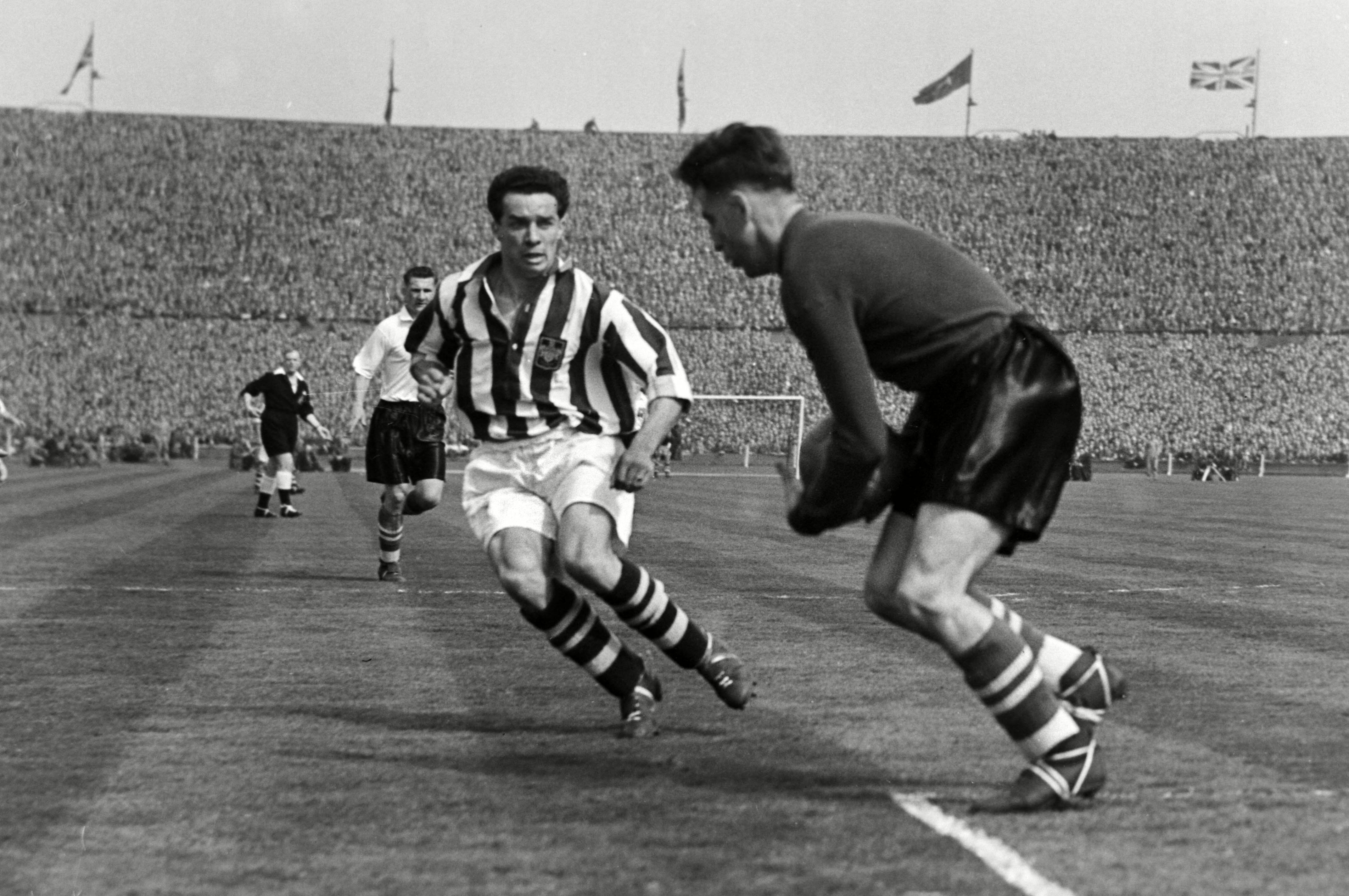
There was no room for mistakes at Wembley. After a season of such enduring quality, there had to be a trophy at the end of it. Such was the pressure that, initially at least, the game was cagey, nerves jangling, nobody willing to be the first to give an inch and offer the opposition the chance of taking first blood. But Albion drew it on 21 minutes, George Lee crossing from the left. The ball beat a couple of Preston defenders and there, emerging from behind them, was Ronnie Allen, just able to meet the ball as it flashed across goal, side-footing it into the net.
The roar had barely died down when Preston were level, Docherty slinging in a deep cross from their right wing, Morrison getting up to head home to make it 1-1, which is how things stayed until the interval, whereupon the forward thinking Albion side were fortified by a whiff of oxygen before returning to the pitch.
Controversy flared early in the second half when Preston took the lead with a goal which everyone in the ground felt was offside, including TV commentator Kenneth Wolstenholme, who was still insisting that the referee had blown up for an infringement as Wayman was putting the ball in the net. There was no whistle, and the Throstles were now behind.
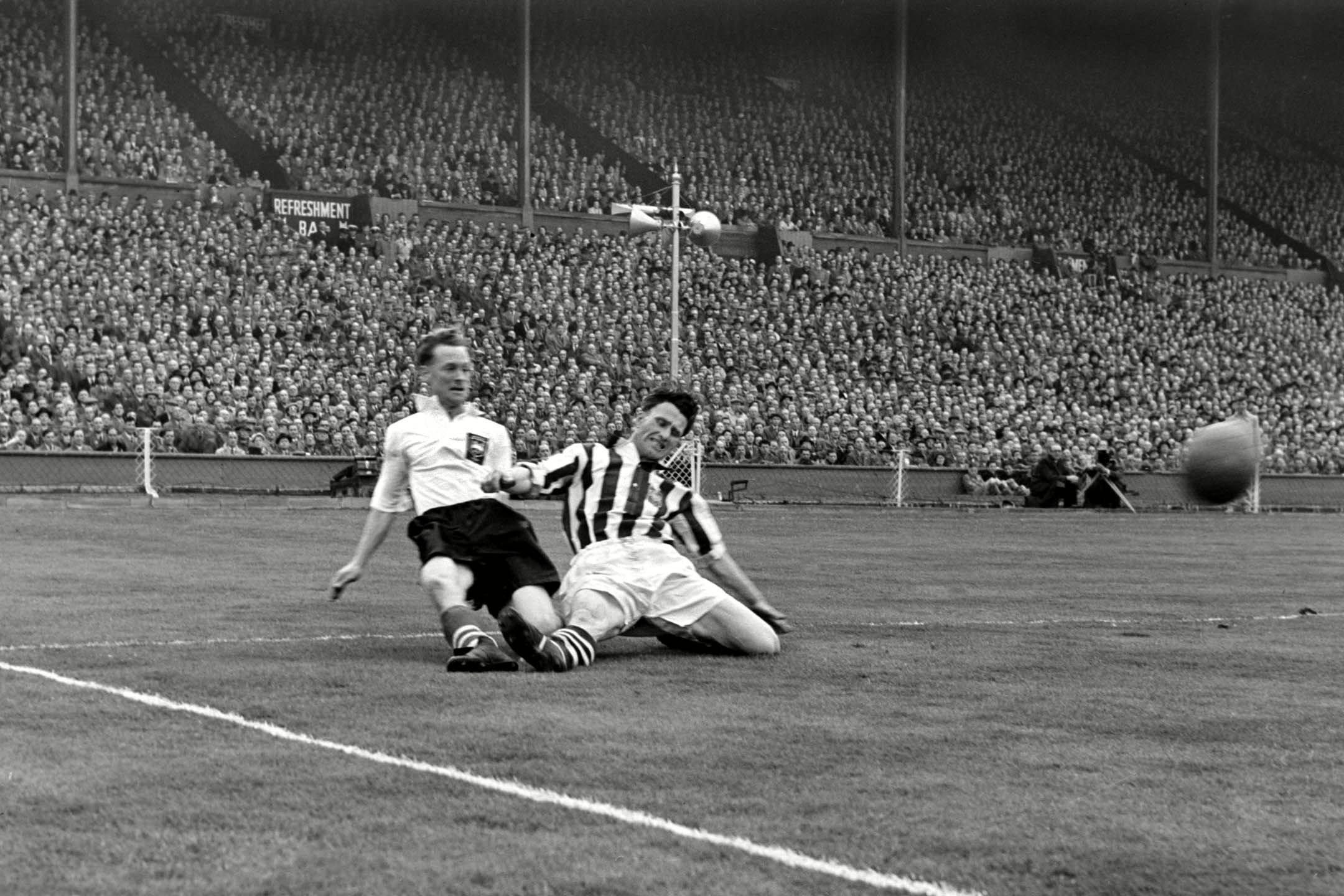
But having lost the league title, Albion were in no mood to give up the FA Cup. The shock of the second goal was like a slap across the face and they began to find something like their best form. Just past the hour, a glorious passing movement took them into the Preston box. The ball was half cleared, Barlow running onto the loose ball, Docherty coming across to bundle him over just inside the area. Penalty to the Albion, Allen to take.
In his autobiography, “It’s Goals That Count”, he recorded, “As I stepped forward to place the ball, I was terrified to find that a divot had been taken out of the spot by a tackle and the ball ‘rested’ into it. So I placed the ball at the back of the spot, only for the referee to insist that I must put it back in the middle. This shook me and as I stepped back to take the kick, my heart was in my mouth. Then I shot, and despite George Thompson’s great dive, the ball was in the net. I had made it and I felt very relieved as we went back to kick-off again at 2-2.”
The only man in Wembley Stadium who missed seeing the kick go in was Albion goalkeeper Jim Sanders, memorably clutching his post and facing the other way, a moment captured in one of Wembley’s most iconic photographs. Sanders, a decorated veteran of World War Two, who had had a bullet lodge in his spine while on service with the RAF, who was told his football career was over and had had to learn how to walk all over again, a man of iron resolve, was reduced to jelly by the enormity of the FA Cup final.
Time ticked by and extra-time looked certain until, in the 87th minute, destiny poked Frank Griffin in the back. Joe Kennedy, the late replacement for Rickaby at right-back, played forward to Ryan and he found Griffin on the right. Darting past a defender, as he drifted inside, Griffin saw a gap and crashed the ball across goal and just inside the far post. It was Albion’s cup.
FA Cup winners, a whisker away from becoming the first team to complete the league and cup double in the 20th century. With artists and artisans, guts, determination and a smattering of genius, this was a team of all the talents, a team that had everything.
The team of the century.
